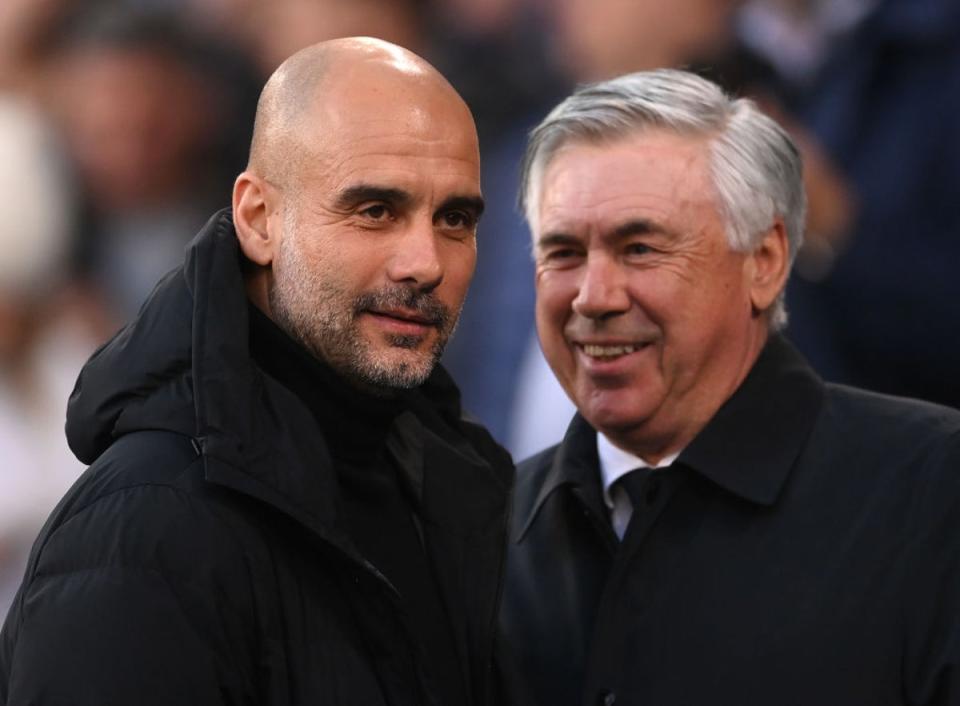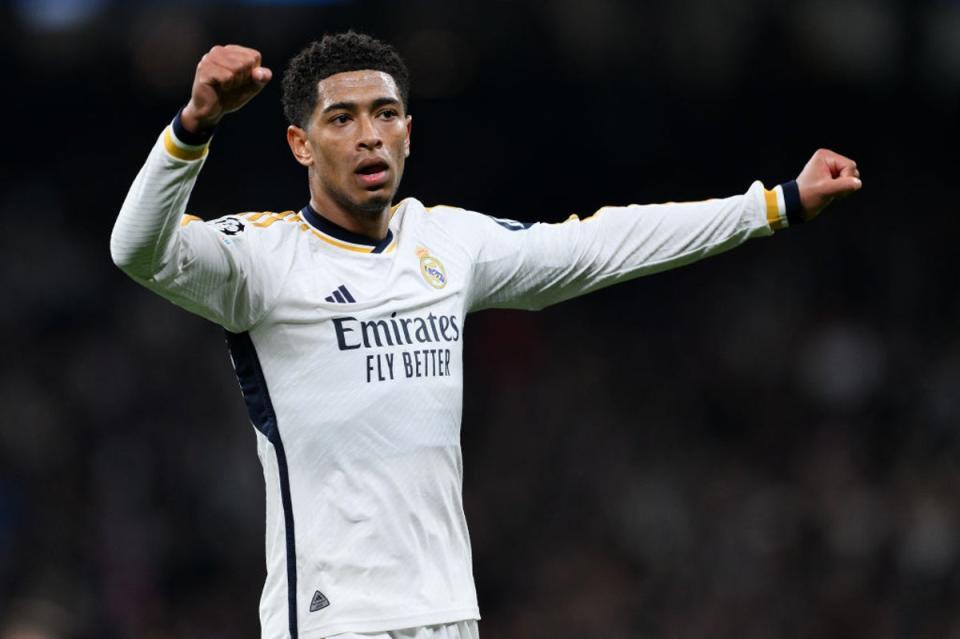The Champions League’s two defining managers with contrasting approaches to success

Pep Guardiola and Carlo Ancelotti may be the Champions League’s two defining managers of the 21st century. They were schooled by arguably the two most influential of the previous two decades. There the similarities might end.
Guardiola rarely passes up an opportunity to pledge his allegiance to Johan Cruyff, to underline his enduring gratitude to his mentor. Ancelotti is the Arrigo Sacchi disciple who became the antithesis of Sacchi. Having begun his coaching career with an unswerving belief in 4-4-2, he evolved into an amiable man-manager. One theory is that he ended up more like his former Roma coach Niels Liedholm than Sacchi, the rigid revolutionary.
None of which means Ancelotti is merely a raised eyebrow with an uncanny habit of winning the European Cup. A light touch can disguise the input he has, but Guardiola recognises it. “You don’t know how difficult it is to be a good manager,” he said. “A coach is only a tactics man, the manager has to be stable and manage players in good times and bad times.”
And if the sense is that Ancelotti is more of a diplomat than a footballing philosopher, Guardiola identified a couple of clever ploys: one a masterstroke for a Champions League-winning team, the other, should Real Madrid beat Manchester City, perhaps likewise. Guardiola has a reputation for cramming midfielders into a team but Ancelotti can sometimes field five or six: maybe with Eduardo Camavinga at left-back, often with Jude Bellingham as a false nine.
“Millions of factors that make you a good coach but you can never think that Carlo is a bad coach coach from a tactical point of view or he wouldn’t have used Andrea Pirlo as a midfielder, he wouldn’t adapt Bellingham so that he can explode,” said Guardiola. “This is part of being a coach, a coach who has been so successful over so many years sometimes they try to snub him this way but we know he is a very good coach.”
He tends to be identified with the false nine more than Ancelotti; he brought a favourite tactic of the Hungary teams of the 1950s back into favour by reinventing Lionel Messi in a central role.
Ancelotti was initially such a fan of the conventional No 9 that, borrowing from Sacchi, he used two and turned down the opportunity to sign Roberto Baggio. His career has featured a host of outstanding strikers: Andriy Shevchenko, Karim Benzema, Pippo Inzaghi, Didier Drogba, Zlatan Ibrahimovic. Now he is instead using an English midfielder there. Bellingham may yet become the Pichichi of LaLiga.
He has faced City before and impressed Guardiola. Now he has gone to a new level. “He played when he was 17 with [Borussia] Dortmund and I said with not just his skills but the difference is what he has in his brain and his mind,” the City manager said. “And he came to this club with exceptional players and manager like Carlo who has the incredible ability to know the best position and Carlo found it so he clicked quick. He’s done an incredible season in terms of goals, assists and his presence in the box.”

Using Bellingham as the false nine was Ancelotti’s way of finding a solution after the loss of Benzema and during a wait for Kylian Mbappe. It can underline the contrasting approaches of the two managers: Guardiola is the idealist who sometimes takes pragmatic measures, and could field a defence of four centre-backs at the Bernabeu.
Ancelotti is the pragmatist who can endear himself to idealists with his answers. At AC Milan, he sometimes found a way of accommodating four No.10s, with Pirlo operating as a regista. He has not used the quadruple-10 strategy elsewhere, but with those players, it made sense to him.
Now Ancelotti is in charge of one of the two Spanish superpowers. Spanish managers, meanwhile, have spread far and wide. Two of the three Premier League title contenders are Spanish, along with the probable winners of Ligue 1 and the Bundesliga.
“Mikel [Arteta] was in the Barcelona academy a bit less, he moved to other countries but Xavi and Luis Enrique [were there],” said Guardiola. “The influence of Barcelona was important for me as a player and coach but after being in Germany and England I’m not the same as I was in Barcelona. I’ve learnt about the difficulties of leagues, but the influence of Barcelona in my case is everything. I arrived there at 13 years old and see where we are right now.”
Perhaps there is a notable difference from his days in Barcelona. Then his midfielders were diminutive. Now he has the strapping six-footer Rodri, the scorer of a winning goal in a Champions League final, and a man whose responsibilities could include stopping Bellingham, Ancelotti’s false nine.

 Yahoo Sport
Yahoo Sport 



































































